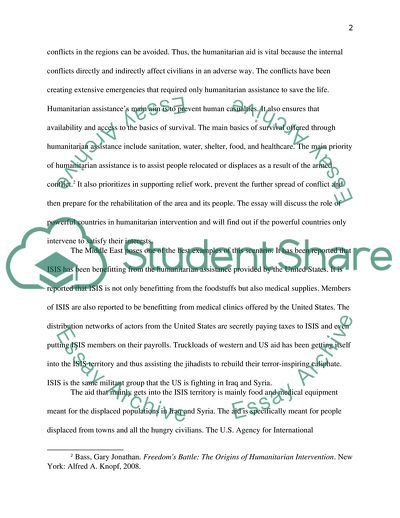Cite this document
(Reasons for and against Humanitarian Intervention Essay Example | Topics and Well Written Essays - 1250 words, n.d.)
Reasons for and against Humanitarian Intervention Essay Example | Topics and Well Written Essays - 1250 words. https://studentshare.org/social-science/1848831-compare-and-contrast-reasons-for-and-against-humanitarian-intervention
Reasons for and against Humanitarian Intervention Essay Example | Topics and Well Written Essays - 1250 words. https://studentshare.org/social-science/1848831-compare-and-contrast-reasons-for-and-against-humanitarian-intervention
(Reasons for and Against Humanitarian Intervention Essay Example | Topics and Well Written Essays - 1250 Words)
Reasons for and Against Humanitarian Intervention Essay Example | Topics and Well Written Essays - 1250 Words. https://studentshare.org/social-science/1848831-compare-and-contrast-reasons-for-and-against-humanitarian-intervention.
Reasons for and Against Humanitarian Intervention Essay Example | Topics and Well Written Essays - 1250 Words. https://studentshare.org/social-science/1848831-compare-and-contrast-reasons-for-and-against-humanitarian-intervention.
“Reasons for and Against Humanitarian Intervention Essay Example | Topics and Well Written Essays - 1250 Words”. https://studentshare.org/social-science/1848831-compare-and-contrast-reasons-for-and-against-humanitarian-intervention.


